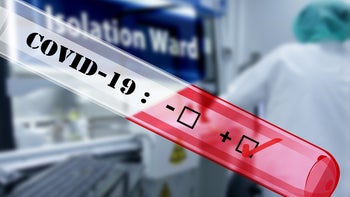$120 smartphone-operated device will test for COVID-19 in just 30 minutes

Testing for COVID-19 requires 4 to 6 hours and a trip to the lab, according to the CDC. This complicates things when whole countries are in a lockdown state, and people are self-isolating. A UK team of scientists at Brunel University London, Lancaster University, and University of Surrey have developed a smart device that can detect coronavirus in 30 minutes, using a smartphone application, SlashGear reports.
Researchers used a combination of artificial intelligence, image processing, molecular virology, and their experience from testing birds for viral infections in the Philippines to create the new device. Apart from being able to provide results in just 30 minutes, the hand-held device is also relatively cheap at around £100 per unit. According to the scientists, it can run tests on 6 people simultaneously, costing as little as £4 per test. The team is currently searching for backers to begin mass-production as soon as possible.
This smartphone-operated device can make testing for coronavirus easy and accessible, and ease the burden on public and private labs. The UK team plans to include a tele-medicine functionality to the app, making the device remotely operational and capable of sending data about tested subjects to health organizations and medical experts. Scientists are already using smart rings to keep an eye on the body temperature of ER doctors, and smart thermometers to make a map of abnormal temperature readings in the US. Making a cheap and fast device that can run tests on several people simultaneously and send the data to health officials can be a game-changer.
“The team strongly believes that with our combined expertise, we will be able to make this device and its associated system available for adoption within a few weeks and take a step closer to beating Covid-19,” said Molecular Virologist Dr Muhammad Munir at Lancaster University.










Things that are NOT allowed: